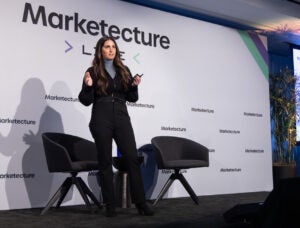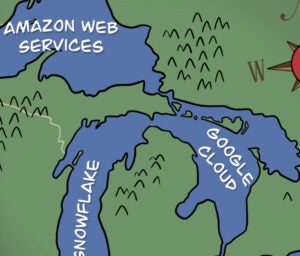 Two months into a quality control effort designed to curb fraud, domain masking and other sketchy practices in its marketplace, AppNexus has offered some details on those cleanup efforts – and even given them a name.
Two months into a quality control effort designed to curb fraud, domain masking and other sketchy practices in its marketplace, AppNexus has offered some details on those cleanup efforts – and even given them a name.
The company’s supply hygiene initiative, dubbed IQ, consists of three measures aimed at boosting transparency and accountability of media sold on the AppNexus exchange. Those measures are (1) pre-bid screening of supply, (2) technical requirements that impose domain-level transparency on media sellers and (3) a money-back guarantee to advertisers. The guarantee kicks in when media is found to be invalid by either DoubleVerify or Integral Ad Science, the two verification firms that AppNexus recognizes.
40% Invalid Traffic
When AppNexus flipped the switch on IQ, CEO Brian O’Kelley was surprised at the volume of traffic that was either non-human or broke another of the company’s policies.
“I think 40% is conservative,” he told AdExchanger.
Pre-bid screening of inventory includes both manual and automated approaches. AppNexus employs five people whose only job is to look for non-human traffic and enforce policies. And as AdExchanger reported in April, the company has added some JavaScript to its ad tag to detect and expose the URL of the underlying page serving an impression. This prevents unscrupulous media sellers from disguising marginal sites – such as ad farms – as legit media properties.
Screening non-human traffic has been a unique challenge, and not always black and white.
“We see a lot of computers where 90% of the traffic is non-human and 10% is human. One of the hard questions for us is: What do we do when we know that someone in a household has an infected computer?”
In some cases the answer is direct outreach to a machine’s administrator. To take one example, AppNexus’s bot-hunters discovered an infected computer behind a university’s IP address. They called university’s IT department, which then isolated the machine and removed the problem.
“Some of it is a little more nuanced than good or bad,” O’Kelley said.
Ad Performance And Financial Impact
During the early phase of IQ, AppNexus says quality publishers have seen revenue per thousand impressions jump between 29% and 47%. Meanwhile a majority of advertisers have seen increases in response rates.
AppNexus also claims the financial impact on its own business been fairly small.
“We make most of our revenue from low rev shares on transactions,” O’Kelley said. “Not transacting on low CPM inventory doesn’t hurt our revenue very much … $1,000 may get spent on 60% of the inventory instead of 100%, but the $1,000 is still going to get spent.”
But some players have been significantly impacted, including publishers buying traffic from non-human sources and ad networks buying non-human traffic.
One company that has taken a hit is Matomy Media, a major AppNexus buy-side customer. In the wake of the new policing efforts the company warned shareholders that a key Matomy trading platform partner (which it did not name but which was almost certainly AppNexus) had released “a new media verification and screening tool” that led to “an immediate decrease in the amount of digital media available for purchase.” Matomy’s share price tumbled nearly 20%.
O’Kelley credits Matomy and others with taking swift action in the wake of the policy changes.
“Sixty percent of our clients took significant action before we turned any technology on,” he said. “By giving clients visibility, they were able to see what was happening to them.”
Guarantee
AppNexus’s new financial guarantee comes into play when an advertiser working with Double Verify or Integral Ad Science, the verification partners Appnexus recognizes, finds something that’s “off policy,” in AppNexus’s parlance.
When that happens, the verification company pings AppNexus, which, if all goes swimmingly, automatically screens out the impression before money changes hands.
“We’re trying to make it as if that impression never happened,” O’Kelley said.
AppNexus is expected to announce IQ officially on Wednesday at the company’s London summit.













